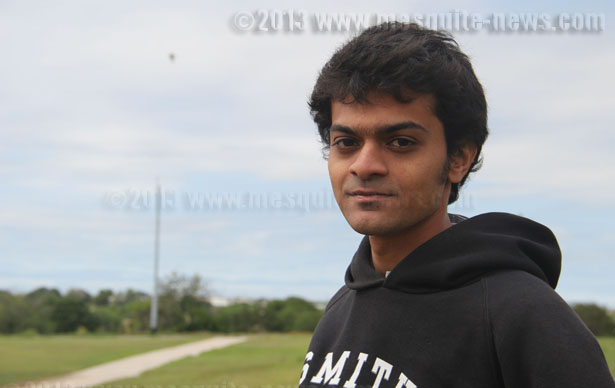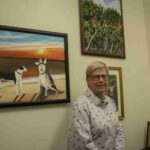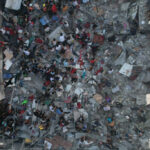By Tawseef Ali
For fourteen years I lived roughly 20 miles east of Savar, in Dhaka City. Before April 24, few of my fellow classmates would have a reason to think or know about Bangladesh and a place called Rana Plaza, a multi-story building that collapsed killing hundreds of garment workers in Savar, a cultural and industrial hub in Bangladesh.
This building collapse is now referred to as the worst industrial disaster in Bangladesh’s history.
Latest figures count a death toll of 410 and at least 2,500 injured. Hundreds are still missing beneath the rubble, without hope of survival. The majority of victims at Rana Plaza were living below poverty level and were children and women.
During the immediate days following the disaster, emergency services continued on through rain, a fire possibly caused by rescue efforts, and protests to address the fate of garment workers at the complex.
Less than 24 hours prior to the structure’s collapse, warnings were issued by engineers after responding to workers’ complaints that cracks were found in the structure. Complaints were ignored by the owner who demanded that workers return the following day.
According to the New York Times, Sohel Rana, the owner of the complex and currently the most despised man in Bangladesh, is accused of illegally constructing the building. Rana Plaza contributed to Bangladesh’s apparel exports to the U.S., it is estimated at roughly $4.5 million, which multiplies in value as it reaches foreign retail outlets.
For more perspective, I attempted to make the connection with the products we consume here and tried to contact the offices of the Bangladesh Garment Manufacturers and Exporters Association (BGMEA) in New York and Washington D.C. Their phone lines were out of service.
Rana was in the complex as it collapsed. He was rescued and attempted to flee the country but was arrested on April 28.
In Bangladesh, injured workers may never be able to work again. Many of the victims were sole providers for their families, and with their death and injury comes a widespread calamity to others depending on their income.
Back in the U.S., students and leaders of tomorrow should take note of this event and consider how fortunate we are to have choices beyond hazardous, or life-threatening jobs. However, with population increases, demand for goods and services increases as well. In the near future, it is possible that our friends and family may have to depend on well paying manufacturing jobs. What kind of work conditions would you want for them?
Do we want to see a positive change in the future? Or do we want society to remain exactly the way it is today? I want change, because I don’t want to be a victim, nor do I want my children to suffer. I am fortunate to have lived with a foot in both world, and the experience allows me to see room for improvement in both contexts.
By blaming culprits, or issuing fines we patch up the problem only partially. To fix the problem, we need to address the core. The questions after Bangladesh should be: Do I buy excess affordable clothing because it is affordable?
Recommended listening: Ethical Fashion: Is the tragedy in Bangladesh a final straw?
Our big world is getting smaller. Lives lost on the other side of the world are connected to us in profound ways.
April was a tragic month for the two countries I call home. A terrorist bombing at the Boston Marathon. An explosion at a fertilizer plant in West, Texas. A building collapse in Bangladesh.
We know the pattern. A tragedy is followed by the condolences of leaders, more anger, more conflict, more laws and so on. In all cases, the victims are eventually forgotten by those of us not directly affected.
Remember the victims.
The victims may have been bread-winners for their families.
The victims may have known love better than we do.
The victims lives may have meant more than ours. The possibilities are infinite. Remember the quest for education and knowledge may keep those lost in our hearts and minds.







